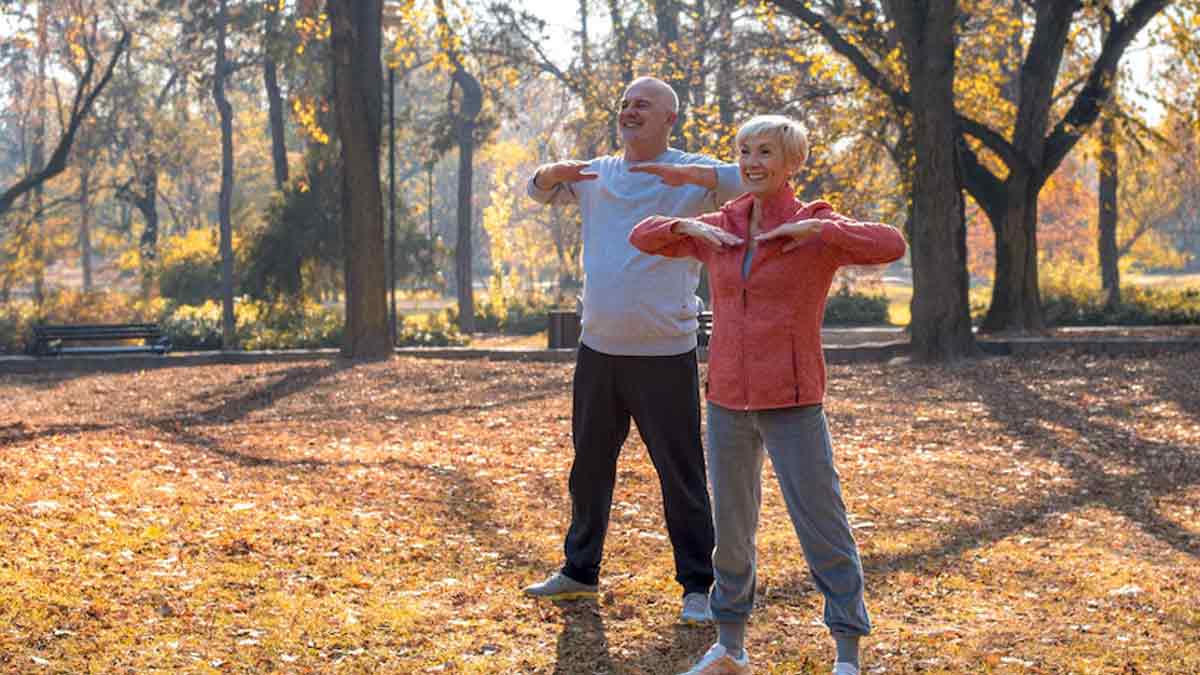Higher Cardiorespiratory Fitness Lowers Dementia Risk, Delays Onset: Study

A recent study has revealed a significant link between cardiorespiratory fitness (CRF) and a lower risk of dementia. The research shows that improving CRF not only reduces the chances of developing dementia but also helps delay its onset. Dementia is a term used to describe a range of symptoms affecting memory, thinking, and social abilities, often severe enough to interfere with daily life. With no cure currently available, understanding ways to reduce the risk of dementia is crucial, and this new study highlights the role of physical fitness in protecting brain health as we age.
What Is Cardiorespiratory Fitness?
According to the National Institute of Health, cardiorespiratory fitness refers to the efficiency with which the heart, lungs, and circulatory system supply oxygen to the muscles during sustained physical activity. It is often measured through maximal oxygen uptake (VO₂ max), which indicates how effectively the body utilises oxygen during exercise. Higher CRF levels are associated with better cardiovascular health, improved endurance, and enhanced overall well-being.
Achieving optimal CRF typically involves regular aerobic exercises such as brisk walking, running, cycling, or swimming. Beyond its cardiovascular benefits, CRF has been increasingly recognised for its role in brain health and resilience against cognitive decline.
Also read: Is Cardio Enough For Staying Fit? Know From Expert
Findings of the Study
The study, published in the British Journal of Sports Medicine, conducted by researchers across multiple institutions, followed over 500,000 participants in the UK Biobank cohort for nearly 13 years. During this period, researchers assessed participants’ cardiorespiratory fitness levels through indirect measures, such as self-reported physical activity and health metrics.
Key findings include:
- Individuals in the highest CRF category had a 42% lower risk of developing all-cause dementia compared to those in the lowest category.
- Higher CRF levels were associated with a delayed onset of dementia by an average of 1.7 years.
- The protective effects of CRF were consistent across age groups, suggesting that improving fitness is beneficial even in later life.
These results emphasise that maintaining physical activity and fitness can be a potent strategy to safeguard cognitive health.
Also read: Loneliness Linked To 30% Higher Risk Of Dementia, New Study Reveals
Link Between Cardiorespiratory Fitness and Dementia

The relationship between CRF and dementia is rooted in the physiological and neurological benefits of regular exercise. High CRF levels positively influence the brain in several ways:
-
Improved Cerebral Blood Flow: Studies have shown that regular aerobic exercise enhances blood flow to the brain, ensuring a steady supply of oxygen and nutrients essential for optimal function.
-
Reduction in Inflammation: Exercise reduces chronic inflammation, a known contributor to neurodegenerative diseases such as Alzheimer’s.
-
Enhanced Neuroplasticity: The Journal of Sports and Health Science shows that exercising boosts the production of brain-derived neurotrophic factor (BDNF), a protein that supports the growth and maintenance of neurons. This helps maintain cognitive function and may slow the progression of dementia.
-
Mitigation of Cardiovascular Risk Factors: Hypertension, diabetes, and obesity are significant risk factors for dementia. Improving CRF helps manage these conditions, indirectly reducing dementia risk.
-
Stress and Mood Regulation: Regular physical activity lowers stress and improves mood by regulating hormones like cortisol. These factors are critical in protecting against cognitive decline.
Implications and Recommendations

The findings underscore the importance of public health initiatives that promote physical activity across all age groups. Simple lifestyle changes, such as incorporating daily walks, using stairs instead of lifts, or engaging in recreational sports, can improve CRF significantly.
For older adults or those with limited mobility, activities like yoga, tai chi, or light resistance training can also enhance fitness levels without excessive strain. The goal is consistent, moderate activity tailored to an individual’s capacity.
Conclusion
The link between cardiorespiratory fitness and dementia prevention adds another compelling reason to prioritise physical activity. As the global population ages, finding accessible and cost-effective strategies to reduce dementia prevalence is crucial. By fostering active lifestyles, society can pave the way for healthier, longer, and more fulfilling lives. The message is clear, taking steps today to improve fitness can lead to a sharper mind tomorrow.
Related
Yaslen Clemente Shows Off Leg Day Gains and Shares Her…
Yaslen Clemente isn't just an influencer—she's a fitness powerhouse. The social media star is known for her intense workouts, and she recently sha
Samantha Espineira Stuns in Blue Swimsuit and Shares Her 5…
Samantha Espineira knows how to turn heads, both on and off the runway. The successful model and Instagram influencer regularly shares breathtaking
The Best Fitness Trackers To Help You Reach Any Health…
Best Health Tracker: Oura Ring 3Why We Love It: I’ve tried many, many fitness trackers—but I tend not to stick with one watch or band for very long. I’ve
#CycleSyncing debunked: Popular TikTok trend not backed by science
A new study has debunked a popular TikTok wellness trend called cycle syncing, which claims that tailoring a workout routine to match the hormonal changes that












